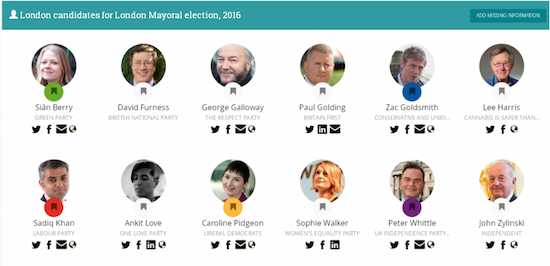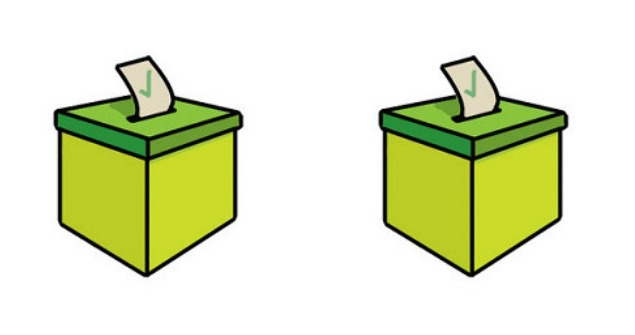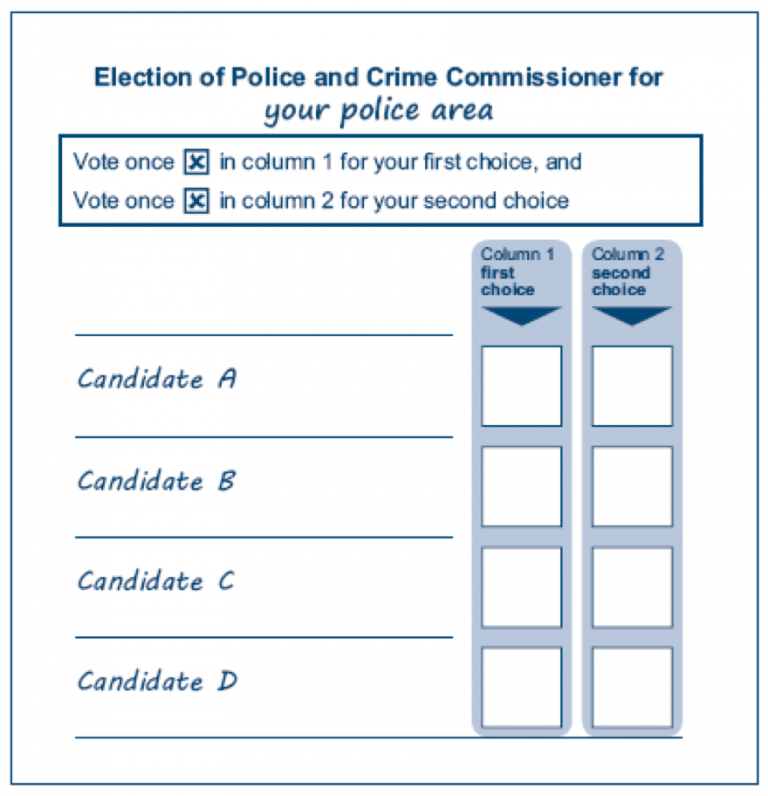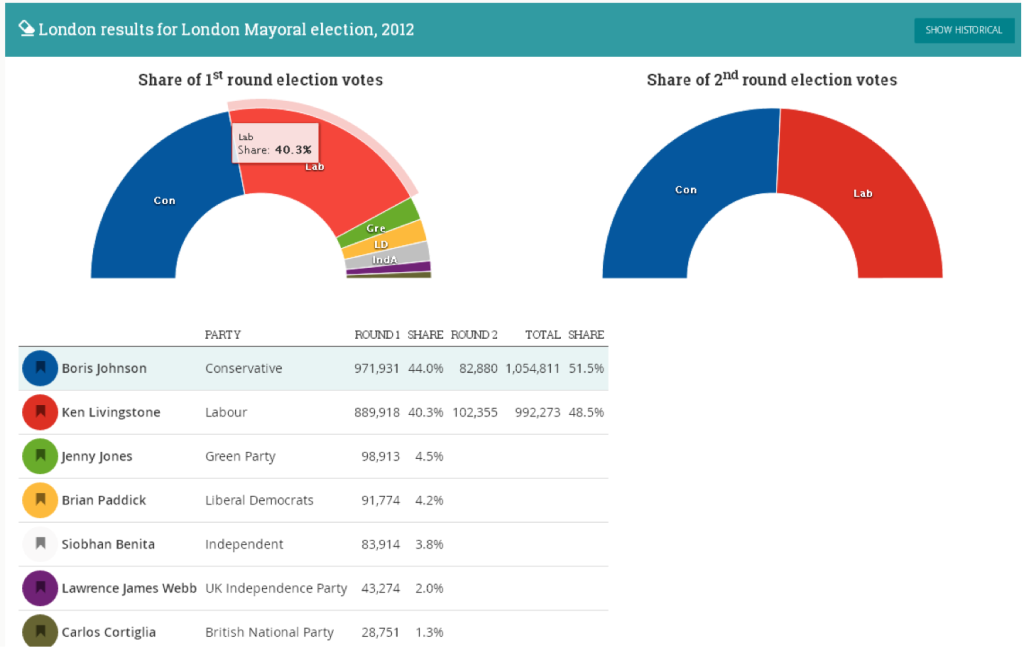Electing the London Mayor and Police Commissioners in England and Wales: How to use your two votes well
British voters are used to having just one vote. But on 5 May this year a record number of voters in England and Wales will be using a two–vote electoral system to choose the London Mayor and Police Commissioners across the country, many for the first time. Wherever you stand politically, Professor Patrick Dunleavy explains how to use both your votes to get more of what you want.
Since mediaeval times, British elections historically followed a standard pattern where voters had a single vote each, casting it for whomever they liked best in a local contest, and then the person with most votes (a ‘plurality’) was elected, whether they had majority support or not. The traditional system is easy to use but is very disproportional.
And the old way of doing things has a crippling disadvantage in choosing single office-holders, like a Mayor or Police Commissioner. In most competitions across Britain, our multi-party system means that the candidate with most votes, and who would inevitably win office under first past the post voting, will not have majority support. In fact a majority of people are likely not to have voted for them.
This explains why since 2000 newer voting systems have given British voters two votes each, to help give them more choice. So in elections today to choose the London mayor, three local mayors, and Police Commissioners across all of England and Wales voters, we will use a different system (the Supplementary Vote or SV). Here you can cast two votes, for your first preference candidate, and then (if you wish) for a second preference person.
In these elections it makes complete sense to use both the votes you have. You can never, ever, harm your top preference party or candidate by using your two votes (i.e. expressing support for two parties or candidates). But, as ever in political life, there are some politicians giving voters very bad, self-serving advice. They are suggesting ways to behave in the polling booth that could lead to voters having less of a say than they can or should.
So I briefly describe show how the SV system works and point out how to use your two votes intelligently, so as to get the maximum amount of what you want politically – whatever it is that you want to accomplish.
How the voting system works for the London Mayor and Police Commissioners
The great attraction of the Supplementary Vote is that it is very familiar and easy for British voters to use. Figure 1 below shows a simplified view of what the SV ballot paper looks like. Voters simply have to mark an X against their most preferred candidate in the first choice column, and then (if they wish) an X in the second choice column.
Figure 1: How the Supplementary Vote ballot paper for electing Police Commissioners will look
The SV counting process is also straightforward. We begin by counting the first preference votes. If anyone has more than 50 per cent of the votes cast then they are elected straight away, and the counting ends there. However, if no one has majority support then the top two candidates go into a run off stage, and the candidates placed third, fourth, fifth etc are all eliminated at the same time. We then look at the second preference votes of people who voted for one of the eliminated candidates. If any of these voters cast a second choice vote for either of the two candidates still in the race then these votes are added to their piles. Whichever of the two top candidates now has the most votes then wins.
This process of knocking out low ranked candidates and redistributing their voters’ second choices ensures that the largest feasible number of votes count in deciding who is elected as the mayor or police commissioner. It does not always completely guarantee that the person elected has a majority of votes cast. But in repeated London elections the winning mayor has had nearly three fifths support amongst votes counted – a very clear result that greatly enhances the legitimacy of the office-holder, and hence their ability to get things done. In previous Police Commissioner elections (held out of sequence in chilly November 2012 and attracting a low turnout then) SV none the less produced the same clear results.
Back in 2000, when the official Labour candidate came a poor fourth and Ken Livingstone won with a campaign that included only one bus and website, one of the least public-interested Labour party tactics was to advise supporters to cast both votes for their candidate – which simply meant that they wasted their second vote. The SV system can only count support for any party or candidate once – if you vote twice for the same person it is not a spoilt ballot (your first vote still counts). But you are just throwing away your second vote if you do this.
How should you decide how best to vote with SV? One way is to look across all the parties or candidates and to cast your vote for the very best person or choice you see in front of you. That securely registers your preference, and it encourages your chosen party for the future, even if the person you back is very unlikely to make the final run-off between the top two candidates. Then, with your second vote, you need to focus down on which two people have a realistic chance of winning office, and decide how to cast your second vote between them. If you have already backed a possible winner, then use your second preference to encourage your next-best party or candidate.
Alternatively you can use your first vote straightaway to decide which of the likely top two candidates you most want to win. Then you can use your second vote to back another candidate whom you like, but who you perhaps know has little chance of winning. Again you can be sure that under SV you will get to influence the final result, while still expressing support for a candidate you really like.
Finding out more about the London Mayor candidates
For London Mayor the top two candidates are already very well-known, but you can find out more about the other candidates, and more in detail about all candidates at the great Democratic Dashboard website – including the candidates’ Twitter or Facebook pages, so you can see what they are like. Here are some pictures of just some of the information the Dashboard shows, together with voting numbers from the last three contests for London Mayor, so you can see who’s likely to be in with a chance this year.
Who is standing to be London Mayor?
 What happened last time in the London Mayor election?
What happened last time in the London Mayor election?
Finding out about the Police Commissioner candidates in your area
The chances are that most voters have heard far less about who is standing for these elections. And I guess most people will really want to know a bit about the personal qualities of these candidates and not just their party labels, if the person involved is going to be in charge of law and order functions. Again theDemocratic Dashboard website can help. For example, here is how the site shows the candidates for one police force area, and tells you how the last 2012 election went – your best guide to who is likely to be in the top two run-off race this time around.
Who is standing to be Police Commissioner in Cumbria?
 What happened last time in the Cumbria Police Commissioner election?
What happened last time in the Cumbria Police Commissioner election?
Use both your votes to get what you want
This Thursday will be a historic moment in the development of British democracy. With a bit of luck there could 10 to 12 million votes for Police Commissioners across England and Wales, and nearly 2 million votes for the London Mayor – marking the biggest use ever made of the Supplementary Vote system. Whatever party, or combination of parties that you support, this two vote approach can help maximise your influence over the outcomes.
—
 To find out more about the 2016 elections in your area, visit the Democratic Dashboard.
To find out more about the 2016 elections in your area, visit the Democratic Dashboard.
Note: this post represents the views of the author and not those of the LSE. Please read our comments policy before posting.
—
 Patrick Dunleavy is Director of the Democratic Audit of the UK, a non-partisan think tank encouraging improved democratic practices across the UK.
Patrick Dunleavy is Director of the Democratic Audit of the UK, a non-partisan think tank encouraging improved democratic practices across the UK.









 Democratic Audit's core funding is provided by the Joseph Rowntree Charitable Trust. Additional funding is provided by the London School of Economics.
Democratic Audit's core funding is provided by the Joseph Rowntree Charitable Trust. Additional funding is provided by the London School of Economics.
https://t.co/BoyGqHYVYH
Thinking is the hardest work there is, which is probably the reason so few engage in it.Henry Ford #Elections2016
How to make the most of your two votes for #LondonMayor election? @PJDunleavy for @democraticaudit: https://t.co/IT0IX9qWSB
Electing the London Mayor and Police Commissioners in England and Wales: How to use your two votes well https://t.co/AFjJoYahaf
Electing the London Mayor and Police Commissioners in England and Wales: How to use your… https://t.co/u7HKrEhFNb https://t.co/M5uQd6VJza